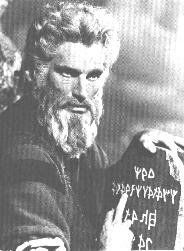 Well the Oscars are over, and I may get around to a blog entry on the four (out of five) "Best Picture" nominated films I saw over the course of two days last weekend. But first let me recommend a great overlooked film - Frank Darabont's The Mist. When I first heard about this my response was kind of "yeah, whatever." I had seen The Fog and it was awful (though the John Carpenter original I hear tell is a lot better). But when I heard that this was a Frank Darabont film, I thought I'd give it a try. After all, the man who made The Shawshank Redemption and The Green Mile, knows how to make a good movie out of a Stephen King story, right? Well, my instincts were right and this is one of the best creature features I've seen in a while. Even Thomas Jane is good in this (didn't know he had it in him).
Well the Oscars are over, and I may get around to a blog entry on the four (out of five) "Best Picture" nominated films I saw over the course of two days last weekend. But first let me recommend a great overlooked film - Frank Darabont's The Mist. When I first heard about this my response was kind of "yeah, whatever." I had seen The Fog and it was awful (though the John Carpenter original I hear tell is a lot better). But when I heard that this was a Frank Darabont film, I thought I'd give it a try. After all, the man who made The Shawshank Redemption and The Green Mile, knows how to make a good movie out of a Stephen King story, right? Well, my instincts were right and this is one of the best creature features I've seen in a while. Even Thomas Jane is good in this (didn't know he had it in him).
 Frank Darabont at work behind the camera (left)
Frank Darabont at work behind the camera (left)
You would think that a film with a premise like this would be filled with Hollywood cliches. A small town near a military base is covered by a dense fog and people begin to be picked off by prehistoric tentacled monsters hidden in the fog which have been set loose as a result of the military experimenting with inter-dimensional portals. The remarkable thing is that Darabont gets his actors to behave in ways that you could imagine people would behave in a situation like that instead of acting like Hollywood stereotypes. The slow building of suspense as the townspeople in the local supermarket begin to realise that something is amiss is brilliantly carried off and a masterpiece of direction.
 Marcia Gay Harden's religious fruitcake "Mrs. Carmody" is a bit of a cheap shot, I guess (why are religious people in movies so often dangerous and crazy?) but her mania provides the Lord of the Flies scenario that sees the grocery store inhabitants revert to their most savage and primitive of survival instincts. A sacrificial victim is needed to appease the blood lust of the monsters and Mrs. Carmody is happy to provide the victims. Renee Girard's concepts of "mimetic violence" and the "scapegoat mechanism" are at work here. A sacrificial social order based on violence is the only thing that can secure salvation for those trapped in the mist enshrouded supermarket. Or is it? Thomas Jane's David Drayton and his little band of dissenters beg to differ and make their escape prefering the monsters in the fog to the ones in the grocery store.
Marcia Gay Harden's religious fruitcake "Mrs. Carmody" is a bit of a cheap shot, I guess (why are religious people in movies so often dangerous and crazy?) but her mania provides the Lord of the Flies scenario that sees the grocery store inhabitants revert to their most savage and primitive of survival instincts. A sacrificial victim is needed to appease the blood lust of the monsters and Mrs. Carmody is happy to provide the victims. Renee Girard's concepts of "mimetic violence" and the "scapegoat mechanism" are at work here. A sacrificial social order based on violence is the only thing that can secure salvation for those trapped in the mist enshrouded supermarket. Or is it? Thomas Jane's David Drayton and his little band of dissenters beg to differ and make their escape prefering the monsters in the fog to the ones in the grocery store.

A warning-the ending of this film is very downbeat. By the final act, you feel like you really need the payoff of a happy ending but it doesn't come. This shows a lot of restraint on Darabont's part as he makes good on his intention to be faithful to the original story, even at the risk of alienating the audience. Four stars from me.



